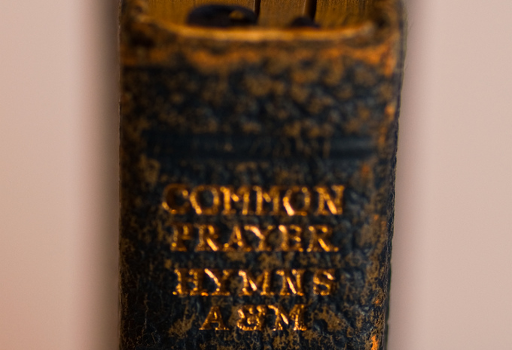I love liturgy. There are many reasons for that: traditional liturgy is the result of centuries of selection and, consequently, it tends to be distilled, concentrated words of worship which ease our prayer. Traditional liturgy is also the expression of church unity worldwide and across centuries. Picture billions of people saying Amen, together, to the same words: that is what liturgy allows.
Tried and tested. Ecumenical. Exciting. Fresh.

Photo: Richard Gilin, re-used under CC License
Hang on – fresh? Never mind the quaint archaisms, the thous and the thees from 1662, how can something – anything – be fresh if it is repeated week after week after week? Surely after so long we go into some form of routine and stop feeling and hearing the power of the words we are uttering.
This is true, of course. Routine does come in. It is especially true if the exact same order of service is used, week in, week out. What I find, sometimes, is that the collect – the dedicated section of the service that changes every week, albeit to the same text every year – is the part of the service where I am most likely to tune out; despite my best efforts.
So, yes, there is a routine. So much so that I can be slightly annoyed at the absence of the prayer of humble access. But this routine, rather than stopping me from engaging, actually is what allows me to engage with the words I am saying on a deeper level. A slight emphasis change, and a whole new meaning of what I have said becomes clear. Start stressing “For us” in the Creed – you’ll see.
Routine can be beneficial to worship: it structures the service, and within the service, it focuses the prayer. But for that to happen, two conditions must be met:
- liturgy must be alive. It must be clear that the leader is not simply reading those words, but proclaiming them. Now, unless you’re presiding over services, you may think there isn’t much you can do about that – but you’re wrong! Prayer is never passive; and it is rare for corporate prayer to be merely the sum of individual prayers. When you pray with conviction and passion, you will have an influence over those near you, and, gradually, remind the leader of the power of the words he or she is proclaiming. And if that fails, you can always have a chat with your worship leader.
- you must not expect change, but be open to it. Expecting new stuff is not only setting yourself up for disappointment, it also means that you’ll be seeking out those tiny differences, at the expense of the wealth that you already know. But if you are closed to change; that is to say, if you think from the start that you know what you’re saying (and how you’ll react to it) backwards, then you won’t engage with it at all.
And like most things, getting to these stages takes some time: time to get familiar enough with the liturgy that you can navigate it to experience those changes and realise how exciting and alive it is. So give it some time, and know that liturgy will come alive.
A bit like Scripture, really.
